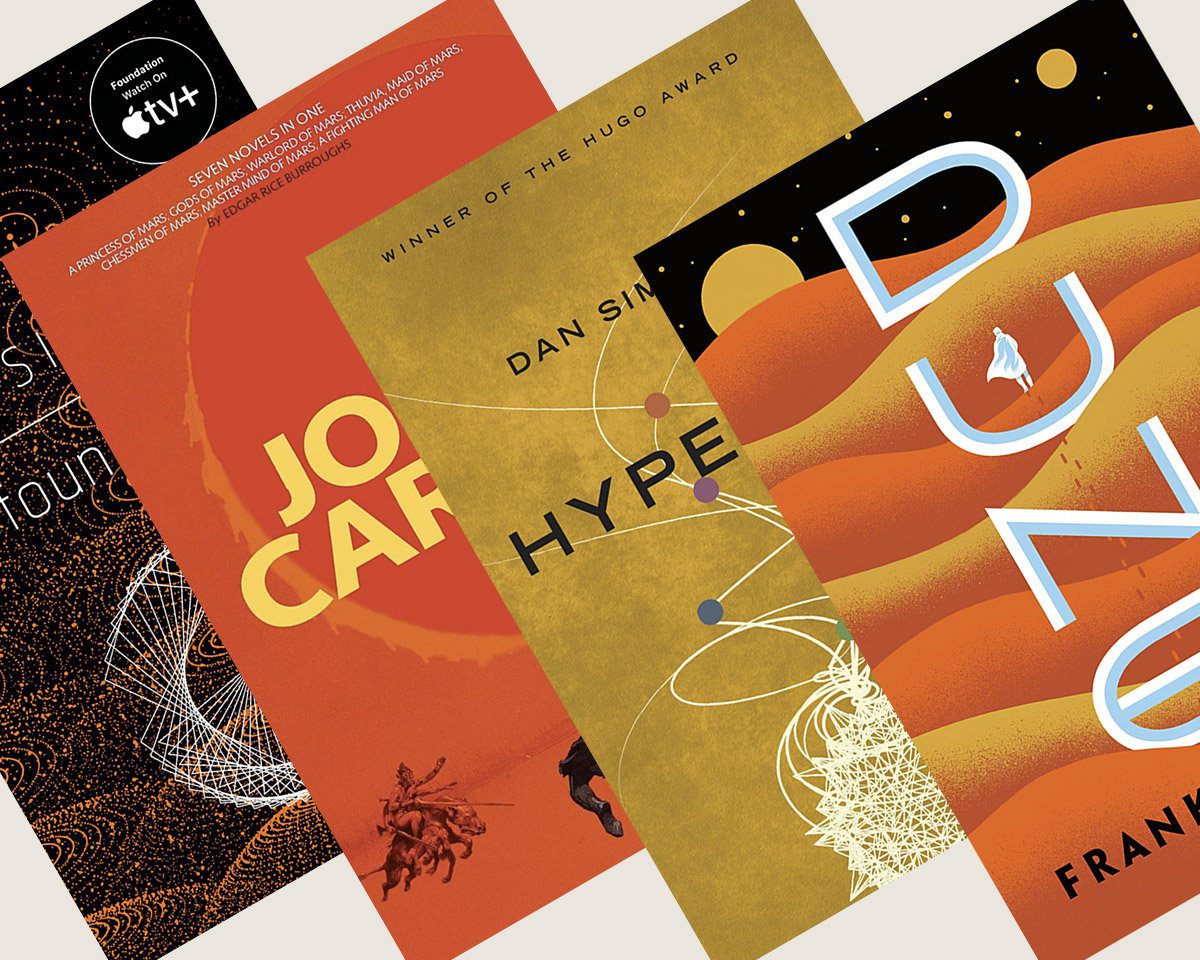Science fiction is a genre that has captured the imaginations of readers for decades, with iconic works that have left a lasting impact on literature and pop culture. From the desert planet of Arrakis in “Dune” to the virtual reality metaverse in “Snow Crash,” these books have helped shape the way we think about technology, society, and the future. Whether you’re a fan of cyberpunk, dystopian fiction, or military science fiction, there’s something for everyone in this list of the 10 most iconic science fiction books of all time. Take a journey through these imaginative worlds and explore the vast possibilities of the genre.
The 10 Most Iconic Science Fiction Books of All Time
1. “Dune” by Frank Herbert
“Dune” is a science fiction masterpiece that has captivated readers since its publication in 1965. Set on the desert planet of Arrakis, the novel follows the story of young Paul Atreides as he navigates political intrigue and battles for control of the valuable spice melange. With its intricate world-building and thought-provoking themes, “Dune” remains a must-read for any fan of the genre.
2. “Neuromancer” by William Gibson
“Neuromancer” is a groundbreaking work of cyberpunk fiction that introduced readers to the concept of the “matrix” long before the internet became a household phenomenon. The novel follows the story of a washed-up computer hacker named Case as he is recruited for a dangerous heist in cyberspace. With its gritty portrayal of a dystopian future, “Neuromancer” continues to influence science fiction writers to this day.
3. “Foundation” by Isaac Asimov
“Foundation” is the first book in Isaac Asimov’s iconic science fiction series of the same name. Set in a future where the Galactic Empire is in decline, the novel follows mathematician Hari Seldon as he develops a plan to preserve human knowledge and civilization. With its exploration of psychohistory and themes of political intrigue, “Foundation” is considered a classic of the genre.
4. “Ender’s Game” by Orson Scott Card
“Ender’s Game” is a military science fiction novel that follows the story of Andrew “Ender” Wiggin, a young prodigy who is recruited to attend Battle School, a training ground for the future leaders of Earth’s space fleet. As Ender excels in his training, he must navigate complex moral dilemmas and face off against an alien race known as the Formics. With its themes of war, leadership, and empathy, “Ender’s Game” has captivated readers for decades.
5. “1984” by George Orwell
While technically a work of dystopian fiction, George Orwell’s “1984” is often considered a foundational text in the science fiction genre. The novel follows the story of Winston Smith, a low-ranking member of the ruling Party in the totalitarian superstate of Oceania. As Winston rebels against the oppressive regime and falls in love with fellow dissident Julia, he becomes embroiled in a dangerous game of resistance. With its chilling portrayal of surveillance and thought control, “1984” remains one of the most iconic works of science fiction literature.
6. “Snow Crash” by Neal Stephenson
“Snow Crash” is a fast-paced cyberpunk novel that takes place in a future America where the government has collapsed and society is organized around corporate franchises. The story follows the adventures of Hiro Protagonist, a freelance hacker and pizza delivery driver, as he navigates a virtual reality metaverse and battles a deadly computer virus. With its mix of action, satire, and cutting-edge technology, “Snow Crash” has become a cult classic in the science fiction community.
7. “The War of the Worlds” by H.G. Wells
Published in 1898, H.G. Wells’ “The War of the Worlds” is one of the earliest works of science fiction to explore the idea of alien invasion. The novel follows the story of an unnamed narrator as he witnesses the arrival of Martian tripods and their devastating attack on Earth. With its vivid descriptions of Martian technology and themes of colonialism, “The War of the Worlds” remains a landmark of the genre.
8. “Brave New World” by Aldous Huxley
“Brave New World” is a dystopian novel that imagines a future society where citizens are engineered and conditioned to fulfill specific roles in a rigid caste system. The story follows the journey of Bernard Marx, an Alpha Plus citizen who begins to question the conformity and control of the World State. With its exploration of genetic engineering, consumerism, and individualism, “Brave New World” continues to provoke thought and discussion about the nature of society.
9. “The Hitchhiker’s Guide to the Galaxy” by Douglas Adams
“The Hitchhiker’s Guide to the Galaxy” is a comedic science fiction series that follows the misadventures of an ordinary human named Arthur Dent as he is whisked off Earth just before it is demolished to make way for a hyperspace bypass. Joined by his alien friend Ford Prefect, Arthur embarks on a journey across the galaxy to uncover the meaning of life, the universe, and everything. With its wit, humor, and absurdity, “The Hitchhiker’s Guide to the Galaxy” has become a beloved classic in the science fiction community.
10. “Starship Troopers” by Robert A. Heinlein
“Starship Troopers” is a military science fiction novel that follows the story of Juan Rico, a young soldier in the Mobile Infantry fighting against an insectoid alien race known as the Arachnids. The novel explores themes of duty, citizenship, and the morality of war as Rico rises through the ranks and grapples with the consequences of his actions. With its action-packed narrative and philosophical depth, “Starship Troopers” has left a lasting impact on the science fiction genre.
